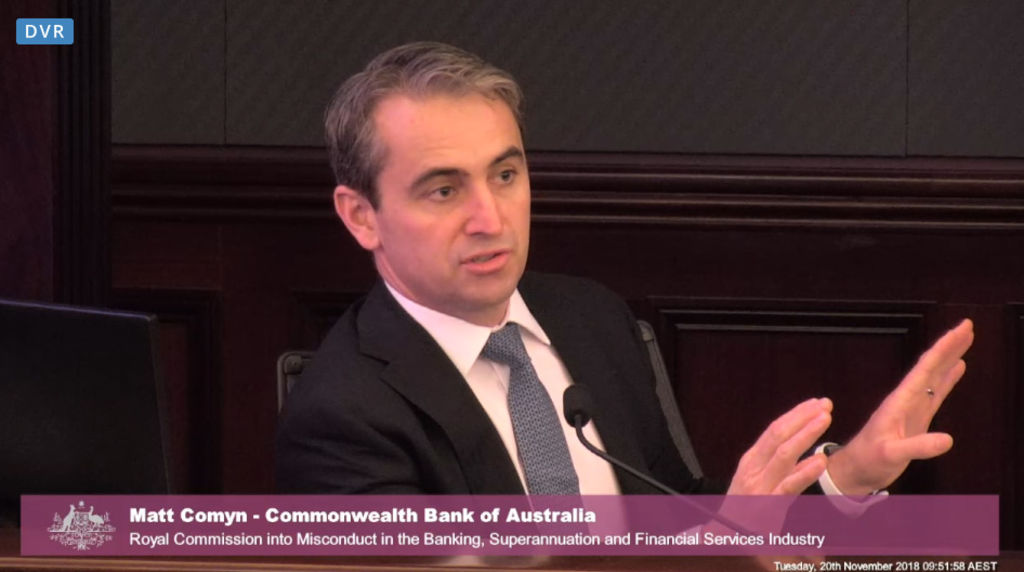What the financial services royal commission recommends on mortgages and loans
Banks may be forced to check whether borrowers can repay their home loans, rather than relying on estimates of household spending, in the wake of the financial services royal commission.
Home borrowers could also be charged fees to use a mortgage broker, and brokers should no longer receive commissions from banks for recommending their home loans, the inquiry recommended, although the federal government baulked at the proposal.

The commission’s final report, released on Monday afternoon, comes as banks have grown more cautious about approving home loans under the spotlight of the year-long inquiry.
Commissioner Kenneth Hayne noted that banks were already reducing their reliance on the Household Expenditure Measure, a low benchmark of customer expenses, when approving home loans.
The ability to repay loans came into focus early last year when the commission heard large numbers of loan applications to NAB deliberately under-reported customers’ living expenses, with mortgage brokers often adjusting loan applications to get them approved.
The Commonwealth Bank was also singled out, with many home loan applicants’ expenses listed at even less than the modest Household Expenditure Measure benchmark.
But the final report noted that banks have already been reducing their reliance on the benchmark. In the final round of hearings, Commonwealth Bank chief executive Matt Comyn said the bank was “doing a better job of discovering what a customer’s declared living expenses figure actually is”.

The benchmark should not be used as a substitute for inquiries into, or verification of, customer expenses, Commissioner Hayne said.
“Steps taken by banks to strengthen their home lending practices and to reduce their reliance on the HEM are being taken with a view to improving compliance with the responsible lending provisions,” he said.
“If this results in a ‘tightening’ of credit, it is the consequence of complying with the law.”
He noted an ongoing court action where the corporate regulator alleged Westpac had breached the law in using the benchmark to assess home loan applications.
“If the court processes were to reveal some deficiency in the law’s requirements to make reasonable inquiries about, and verify, the consumer’s financial situation, amending legislation to fill in that gap should be enacted as soon as reasonably practicable,” he said.
Since the commission first focused on borrower expenses, reports have emerged of banks turning down prospective borrowers who spend too much money on food delivery services, online lay-by service Afterpay, gambling or other debt repayments.
Domain economist Trent Wiltshire said the inquiry would likely not lead to a further tightening of home lending standards after banks became stricter on verifying living expenses last year.
“The royal commission recommendations around home loan lending are likely close to what banks anticipated,” Mr Wiltshire said.
“As a result, banks may have reached or are close to reaching a ‘new normal’ of tighter lending standards.
“Consumers are also adjusting to the new lending environment, although investors remain reluctant to borrow. After falling in 2018, home lending may be close to bottoming out, although this may require more investors returning to the property market.”

Mortgage broker pay was also highlighted in the final report, after the commission heard evidence of issues over compliance with responsible lending laws.
Mortgage brokers would be paid by borrowers rather than banks and would be required by law to act in borrowers’ best interests, and brokers should be regulated by the same laws that apply to financial advisers, Commissioner Hayne recommended.
Changes to mortgage broker pay should be made over two to three years, first by banning trail commissions for new loans and then by banning other commissions, the report found.
Although Treasurer Josh Frydenberg pledged to take action on the report’s 76 recommendations, he planned to “proceed carefully and in stages” on the mortgage broking industry.
The changes could decrease competition and improve the position of the banks, he said, committing only to review whether borrowers should pay the fees rather than requiring this change.
Intermediaries came under scrutiny early last year when the commission heard NAB managers accepted envelopes stuffed with cash as part of an alleged bribery ring. Fake payslips were used to secure loans and at least one gym owner participated in the “introducer” scheme later restricted to accountants and financial planners.
The year-long inquiry, which covered cases of misconduct and conduct falling below community standards, focused on consumer lending as well as financial advice, superannuation, small business lending, insurance and regional customers.
Mr Frydenberg has previously called on the big banks to keep lending to households, warning that slower credit growth could spill over into the real economy.
Labor has made a similar commitment to Mr Frydenberg’s pledge to take action on the 76 recommendations.
We recommend
We thought you might like
States
Capital Cities
Capital Cities - Rentals
Popular Areas
Allhomes
More







